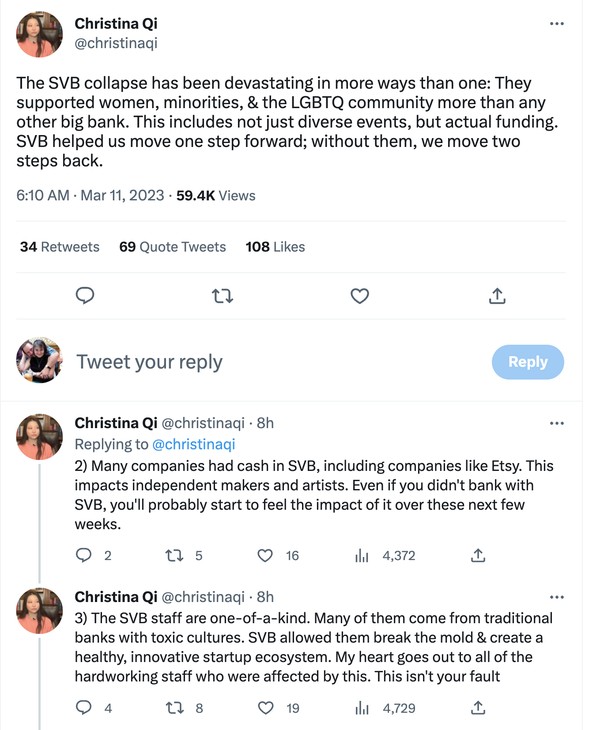I am not a major consumer of financial news. I have a sense of how the economy works, in broad strokes, but as for the specifics of how particular sectors of the economy are doing at any one time, and what is happening at individual companies, I just am not up to speed.
In general, I rely, as most people do, on the reporting we get from the media. How else are average people supposed to get information? Pour through the financials of corporations and try to put together a patched-together picture of the whole? Not going to happen.
I let others manage my meager investments, and they are in relatively safe and unimpressive mutual funds.
Still, I like to get broad strokes, and I often have read articles in Forbes, as have many of you. Forbes’ batting average every since a Chinese firm bought a majority interest in the enterprise has been particularly awful, hyping firms which turn out to be frauds.
— Freezing Cold Finance Takes (@FreezingFinTake) March 13, 2023
I admit that I haven’t done a deep dive into the complete landscape of financial news, and other publications have similarly awful track records (Sam Bankman-Fried and Elizabeth Holmes were everybody’s favorites, but the New York Times is hardly as relied upon for financial coverage as Forbes). Perhaps nobody is any good at covering business.
But Forbes’ failures are striking, not only missing big stories that could have avoided disasters but doing the opposite: helping fuel hype that ultimately made the inevitable downfall of bad companies much worse.
Forbes is known for its commitment to capitalism–a commitment that I share. But the foundation upon which capitalism is built is not the free flow of money, but the trust in the institutions that allow people to make smart decisions regarding how the free flow of money takes place.
Money itself is built on that trust, and investments of that money take place in a murky world of limited information. Investors rely upon analysts (almost none of whom advised getting out of SVB while you could) and the financial press to make decisions.

Forbes went a step further, though. They ranked SVB as one of the best banks in the world less than a month before it collapsed. This is to me remarkable.

SVB was an All-Star, alright, but not in the way that Forbes implied. Weeks after being named an all-star it became the star of a very bad show indeed, becoming the second-largest bank collapse in history.
Predicting bank runs is a fool’s errand since they depend upon unpredictable psychology, and any prediction of a bank run becomes self-fulfilling, making doing so irresponsible.
But SVB’s troubles were caused by an underlying weakness that a financial magazine is particularly well-placed to discover. By falsely reporting what is manifestly not true–that SVB was a particularly strong bank–Forbes participated in misleading investors who were at great risk.
SVB’s stock value when Forbes made its endorsement of its particular virtues as a bank was $310/share. They are now worth effectively zero.
Two things, in particular, stand out about SVB: its concentration in a volatile industry–startups–that is highly dependent upon a roaring economy, and its wokeness. Neither recommended the bank as a sound investment. Add to that the fact that Cramer promoted it and you knew it was in trouble.
One of Forbes’ Board members lamented after the collapse of the bank that the Left was losing one of its greatest allies, which strikes me as a rather weird take given the scale of the disaster. Was the new commitment of Forbes’ Board to woke ideology related to its judgment that SVB was a particularly great bank? I don’t know, but I have my suspicions.

SVB was very woke, and a Forbes Board member seems more concerned about the Left losing access to capital and power than the collapse of the bank itself.
The focus on ESG and woke politics is a threat to capitalism, and it is scary to see a magazine as prominent as Forbes apparently fall under its spell.







Join the conversation as a VIP Member